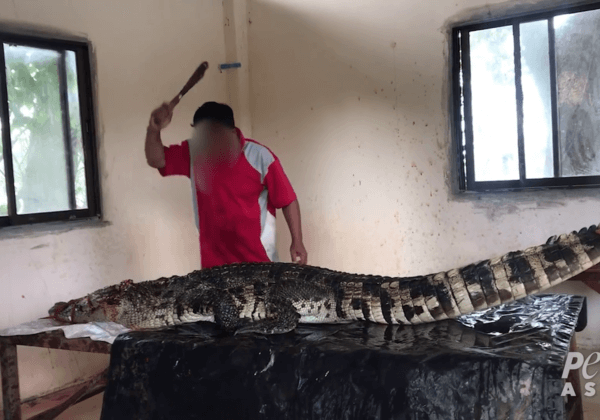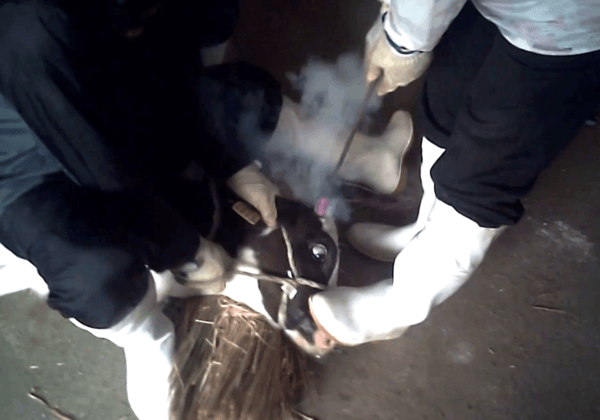Busted in Buenos Aires—Animal Smuggler Gets Nabbed
 A Czech man named Karel Abelovsky got busted at a Buenos Aires airport trying to smuggle a whopping 247 animals onto a plane headed for Madrid. As Abelovsky attempted to board his flight, airport security staff and X-ray technicians were startled to find more than 200 reptiles and mollusks stuffed into his suitcase.
A Czech man named Karel Abelovsky got busted at a Buenos Aires airport trying to smuggle a whopping 247 animals onto a plane headed for Madrid. As Abelovsky attempted to board his flight, airport security staff and X-ray technicians were startled to find more than 200 reptiles and mollusks stuffed into his suitcase.
Two of the animals who had been crammed into plastic tubes were already dead because of a lack of oxygen, and many more would surely have died if Abelovsky had successfully boarded the long flight. Officials suspect that he is part of an exotic-species smuggling ring. He could face up to 10 years behind bars.
Unfortunately, such attempts at smuggling live animals are not uncommon, and many countries across Asia have lax laws or insufficient resources to uphold current laws regarding these despicable acts. In August 2010, a Thai woman was caught trying to disguise a live tiger cub among plush toys in her suitcase while boarding a plane at Bangkok’s Suvarnabhumi international airport. Her destination was Iran, as tigers and other wild animals such as bears and monkeys make popular “pets” across the Middle East.
Thailand is a hub for animal smugglers because many endangered and rare species can be purchased in alleyways and behind closed doors at Bangkok’s Chatuchak Market. Thailand is being increasingly monitored from abroad, but many Thai people, including police officers and officials, are unaware of animal smuggling. After drug trafficking, the illicit trade in wildlife is Thailand’s second most lucrative illegal industry.
When people succumb to the temptation to purchase wild animals, such as hedgehogs, macaws, lizards, and monkeys—and even tigers and bears—from stores, auctions, or the Internet in order to keep them as pets, it often leads to pain and death for these animals. Wild animals can easily suffer from malnutrition, loneliness, and the overwhelming stress of being confined to an unnatural and uncomfortable environment. They are also notoriously unpredictable and dangerous, as they haven’t been domesticated for thousands of years like cats and dogs have. The wild-animal trade is also deadly for animals we don’t see: For every animal who makes it to the store or the auction, countless others die along the way.
If you’d like an animal companion, visit your local animal shelter rather than supporting the illegal and barbaric smuggling of wildlife. Rescue a cat or pamper a pooch today!
Posted by Robert Fry








